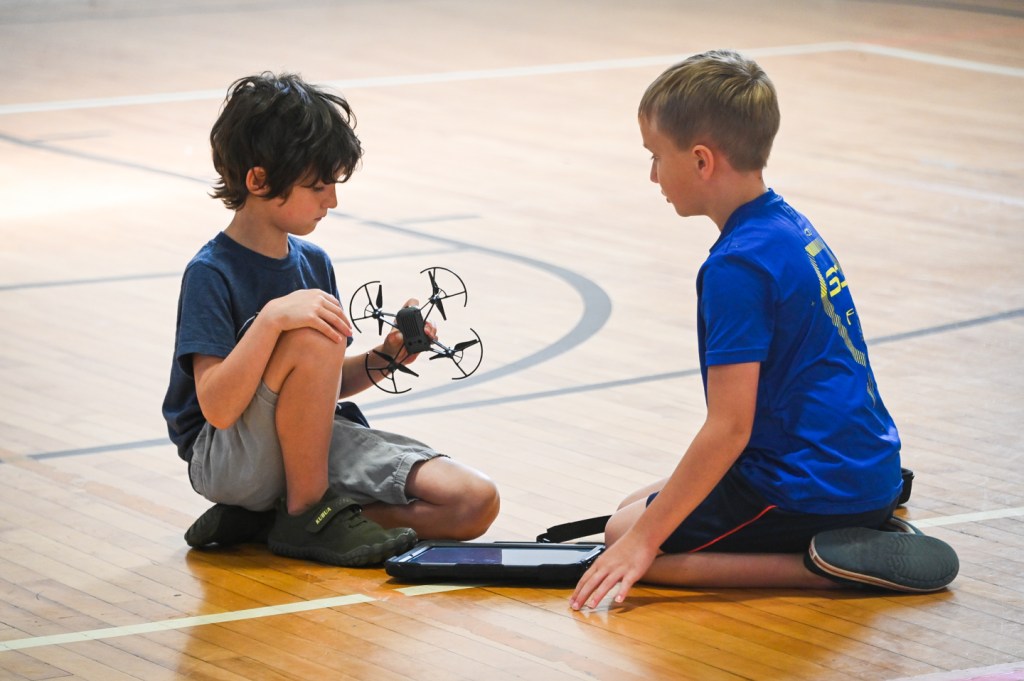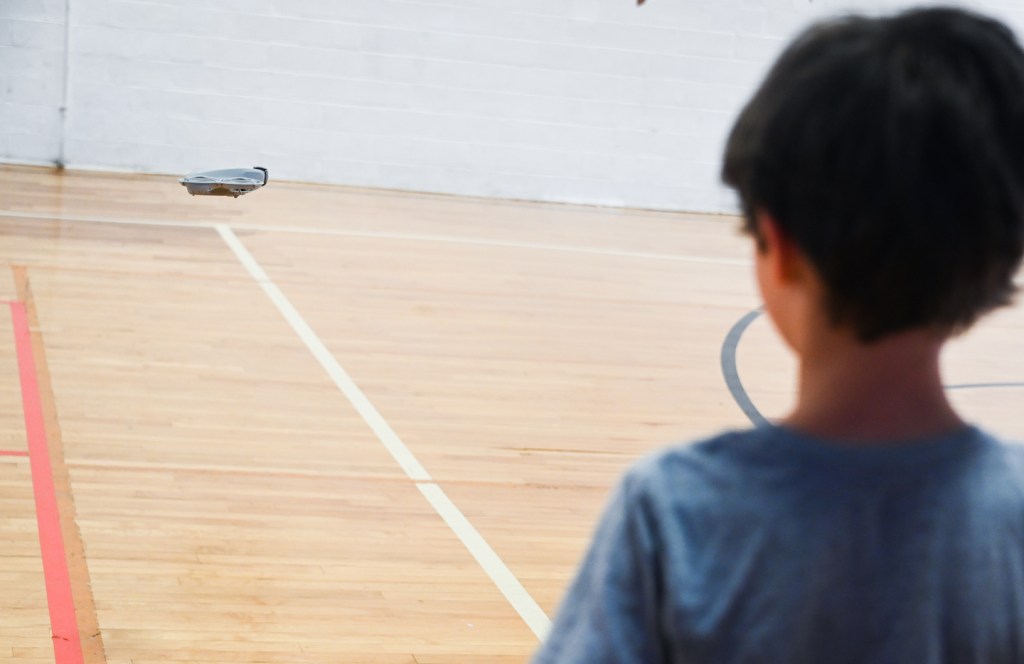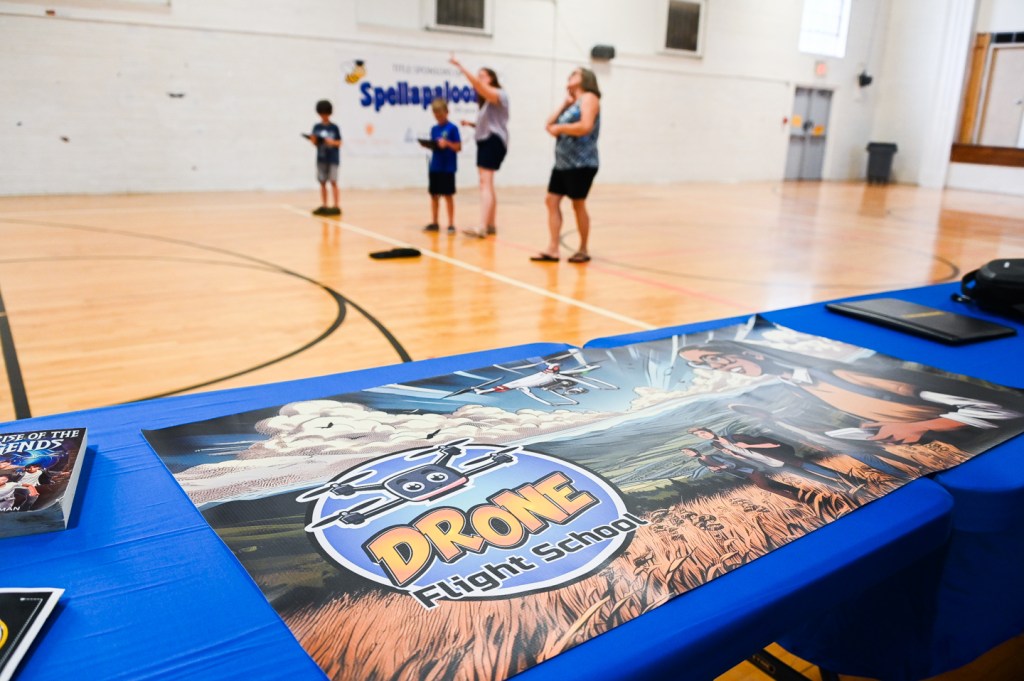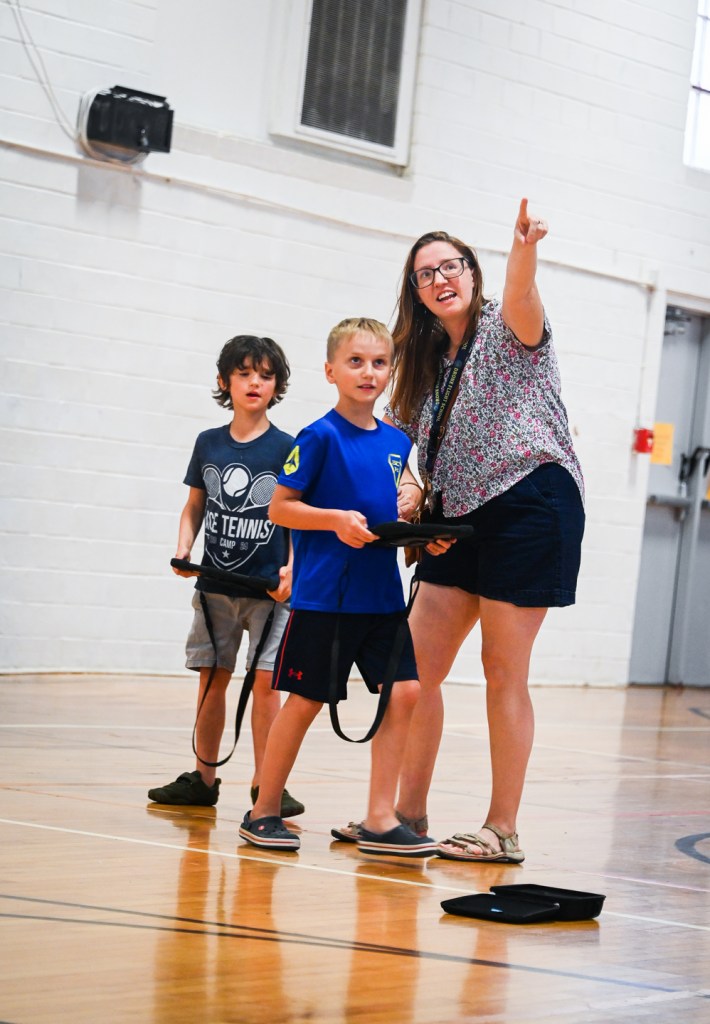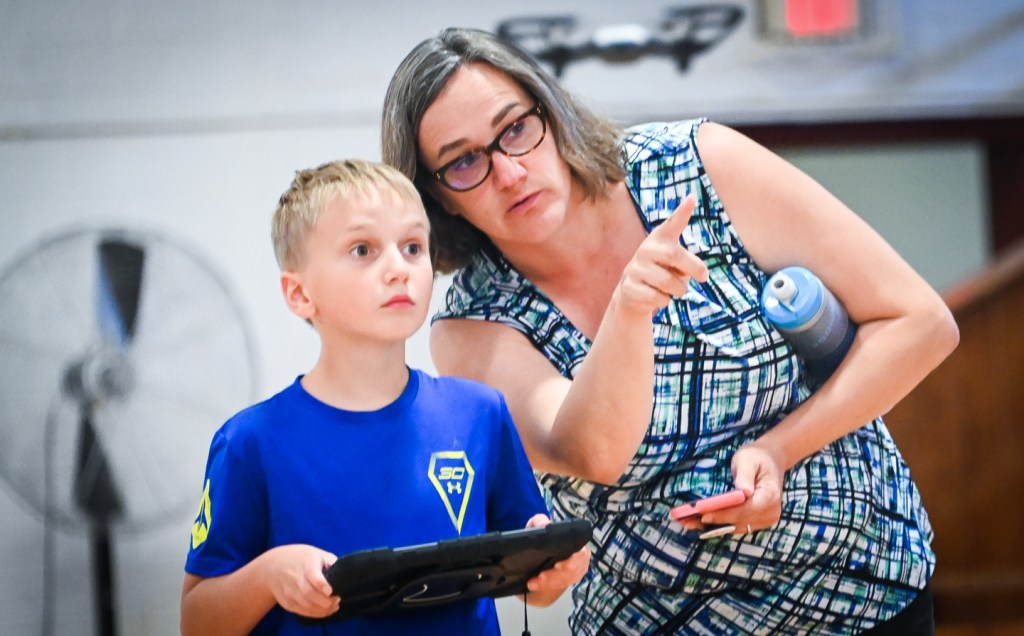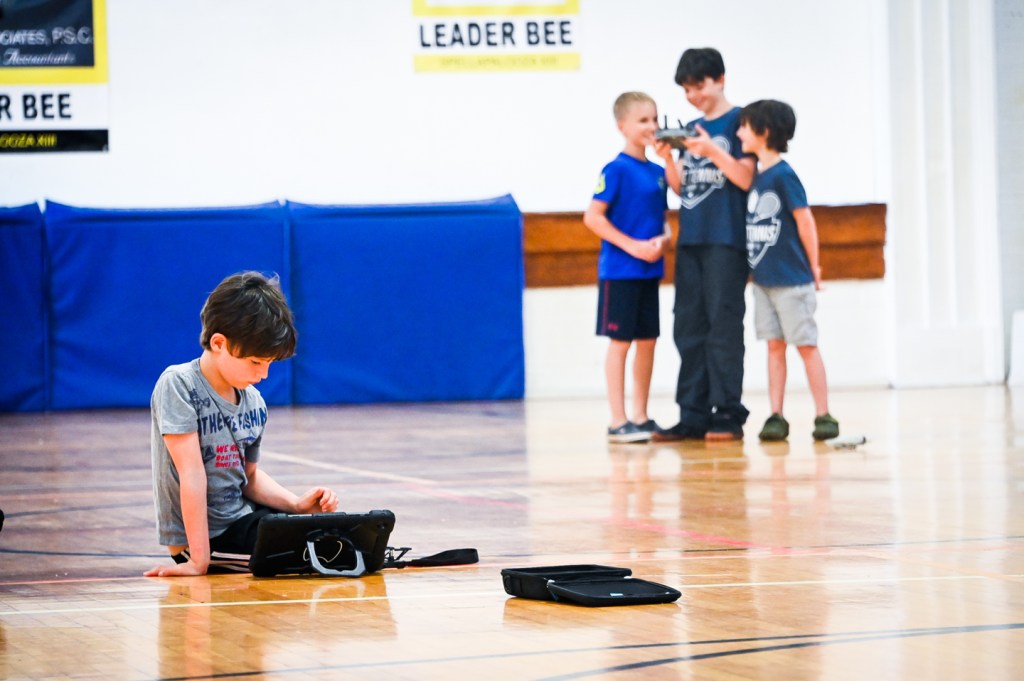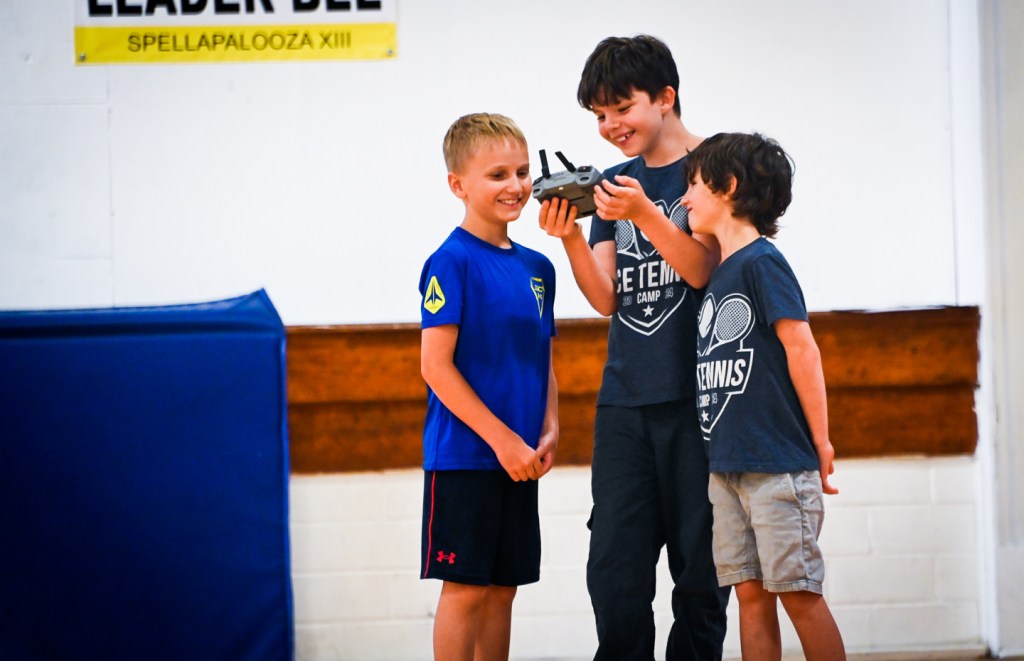By Daksha Pillai
Ballet recitals, soccer practices, piano lessons — when brainstorming potential extracurriculars for their children, these are the staples that most parents turn to. However, one organization in Frankfort is trying to take after school activities into the 21st century. As recent advances in artificial intelligence and robotic capabilities cast a global spotlight on innovation, old and young learners alike are soaring to new technological heights with the Drone Flight School.
Founded in May 2024, Drone Flight School offers educational curriculum, day camps and hosts monthly meetings where participants fly drones and work toward receiving certifications. The program was spearheaded by Jason Allen, executive director of the Franklin Center for Innovation, which promotes science, technology, engineering and math education in a variety of fields.
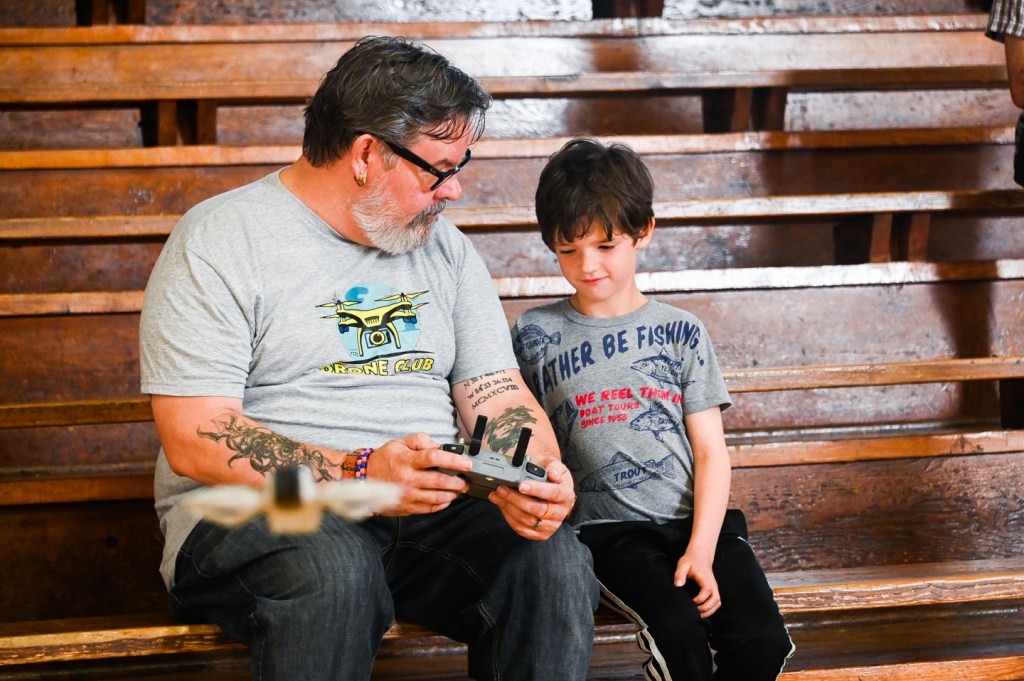
“We wanted to do something with kids that would give them the opportunity for future jobs, as well as something that’s fun,” Allen said.
As Allen was being interviewed, he was frequently interrupted by young club members who approached him for help troubleshooting failed landings, video malfunctions and a drone crash into the gym wall at the Thorn Hill Education Center, where meetings of the Drone Flight School are held. In the last case, the drone was luckily undamaged after Allen helped the juvenile pilot reattach the camera.
Though Drone Flight School has plenty of opportunities for adults, including studying for Federal Aviation Administration drone pilot certifications, much of its programming is centered around children of all ages. With elementary and middle schoolers working alongside self-described members of the “lost in space generation,” the result is a diverse hotbed of learning that traverses age and experience.
Laura Driskell, a member of the Drone Flight School along with her three young boys, described their evenings flying drones as an alternative to hours spent playing video games. While video game usage is increasingly widespread among adolescents, organizations like the American Academy of Pediatrics have advocated for parents to set time limits on their children’s gaming due to negative impacts on sleep and wellbeing. Drone technology utilizes video game hallmarks like joysticks and video feeds but employs them in an educational setting.
“It’s the technical and game-like stuff but getting away from the screen, it’s like video games in real life,” Driskell said.
Drone technology can also be an exciting introduction to core concepts in STEM education. Whether through using block coding to chart flight paths or learning the engineer design process to create their own programs, students are simultaneously learning and having fun.
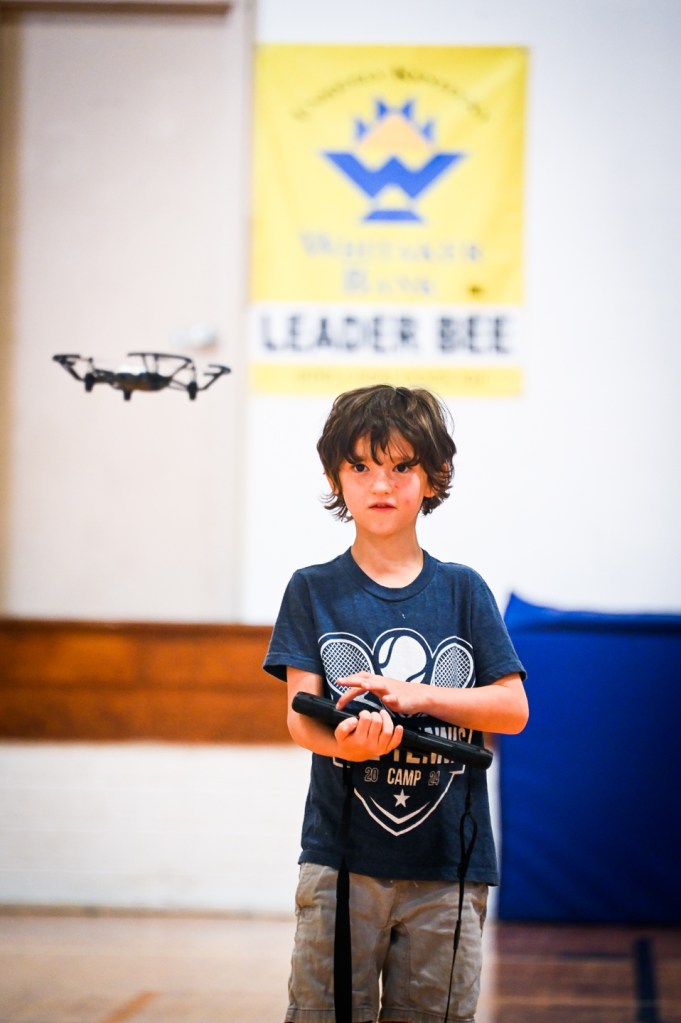
“They’re doing math, measuring, coding, and they don’t realize that they’re learning while they’re flying drones,” Driskell said.
This “accidental learning,” as Allen calls it, can translate to intentional career paths. In past day camps, students have been introduced to real-world applications for drone technology, including emergency relief efforts, wildlife conservation, aerial photography and more. With teenagers able to receive commercial drone pilot licenses at as young as 16 years old, there is no need to wait until graduation to start envisioning future careers.
“Drones are finding their way into almost every aspect of industry, it runs the gamut,” Allen said.
To ensure that all children have access to these game-changing technologies, the Drone Flight School frequently partners with local schools and homeschool co-ops to hold educational events. Their website features free courses, safety tips and educational videos featuring a googly-eyed drone named AERO, which stands for Adventurous Exploring Robotics Operations . As part of a recent demonstration, AERO flew from Frankfort over the Great Smoky Mountains to reach a class at Morehead State University.
The Drone Flight School’s educational mission doesn’t end with Frankfort. In May, Allen traveled to Unalakeet, a small coastal village in Alaska, to hold a weeklong stem camp for students from 6 to 14 years old. While the camp also included lessons on fish anatomy, solar energy and other relevant STEM topics, the drones were the real star of the show.
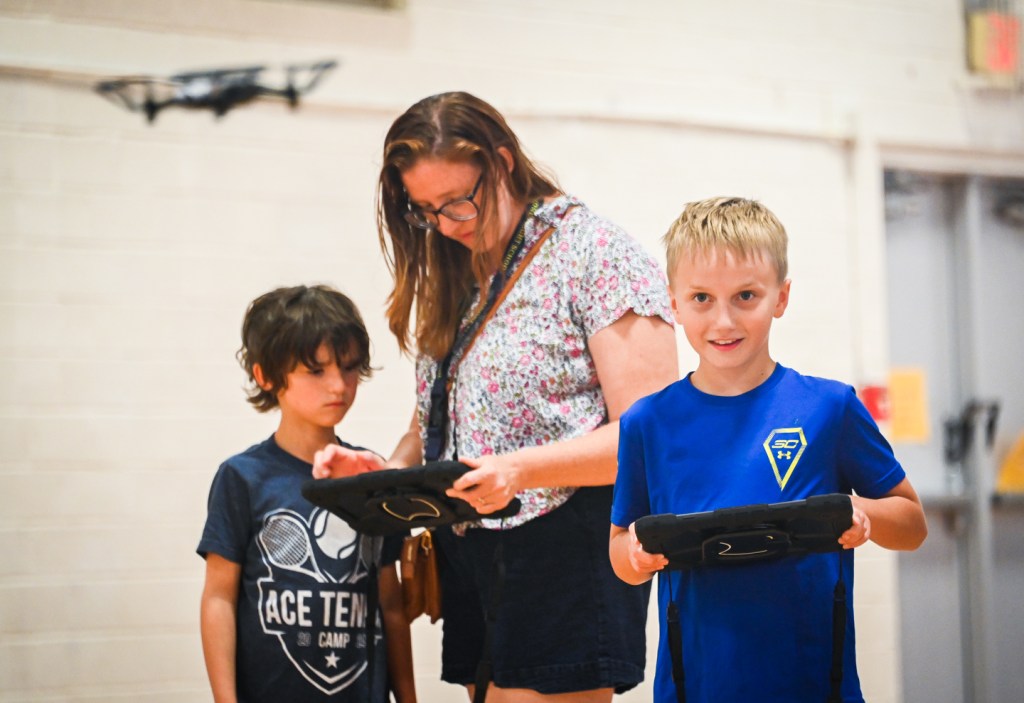
“We shouldn’t have done drones on the first day because for the rest of the camp, everyone was asking ‘when can we fly drones again?,” Allen said.
In the future, Allen hopes to establish a sister school in Unalakleet to continue introducing students to drone technology and to promote cross-cultural collaboration between Frankfort and Alaskan members.
“We look forward to Zooming with them and letting these young people work with their young people and grow a program,” Allen said.
As Allen finished that last point, a blonde boy hefted a controller into his hands and asked for help. He gave it, but not before demonstrating some new tricks, sending the drone into high arcs over the gym floor.
“I’m just showing off now,” Allen laughed, as he steered the drone into an isometric circle.
“Do you think you can do that?” he asked the boy, who looked considerably impressed.
“I bet I can,” the boy replied, “if I tried hard enough.”
To learn more about Drone Flight School, visit their website https://sites.google.com/view/droneflightschool/courses or follow them on Facebook @dfsdroneclub.
